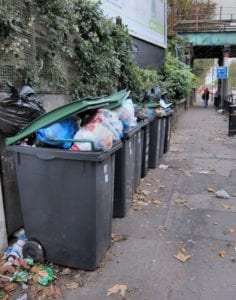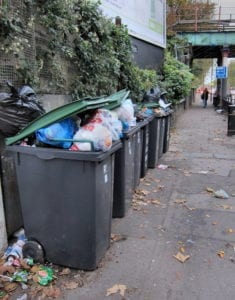The five-week-long Pikitup strike finally came to an end this week. The repercussions of the strike however will need to be dealt with for weeks to come.
Rubbish piled up in the City of Johannesburg while workers took part in an unprotected strike, demanding wage hikes and the resignation of Pikitup Managing Director Amanda Nair.
Earlier this month the National Institute of Communicable Diseases (NICD) called for urgent action because of the health risks posed by the ever-increasing amount of uncollected rubbish, particularly in rural areas. These rubbish heaps provide the ideal breeding ground for rodents and insect pests as well as infectious diseases.
With striking workers having returned to work on 11 April Pikitup is now taking efforts to address the backlog of uncollected waste and the health risks it poses. A double shift system has been implemented as a measure to clear backlogs of refuse removal and illegal dumping. The system will comprise of a day and night shift.
According to Pikitup, these efforts will be complemented by resources mobilised from all entities of the city and third party contracted service providers in order to remove the backlog of waste by the end of the month.
While Pikitup workers have commenced with their normal scheduled waste management services which includes refuse collection, street sweeping and clearing of illegally dumped waste, the organisation was warned that normal operations may be slower than usual due to excess waste which has accumulated over the past five weeks.








